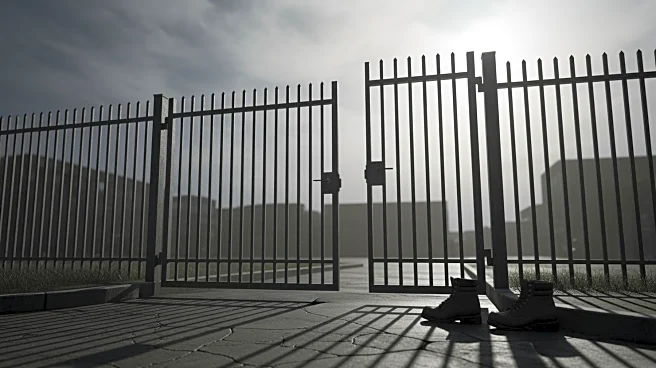Rapid Read • 8 min read
President Trump has escalated his federal takeover of the capital by ordering some troops to carry service weapons in Washington, D.C. This move is part of his broader initiative to address crime in major cities, including Chicago. The decision comes amid ongoing discussions about federal intervention in local law enforcement, with Trump emphasizing the need for a stronger federal presence to combat crime. The deployment of armed troops marks a significant shift in the administration's approach to handling urban crime, raising questions about the balance between federal and local authority.
AD
The decision to arm troops in Washington, D.C. has significant implications for federal and local relations. It underscores the administration's commitment to a more aggressive stance on crime, potentially affecting public perception and local governance. This move may lead to increased tensions between federal and local authorities, as cities like Chicago have expressed concerns over federal intervention. The presence of armed troops could also impact public safety and civil liberties, sparking debates about the appropriate level of federal involvement in local policing.
The deployment of armed troops is likely to prompt reactions from local leaders and civil rights groups. There may be legal challenges or calls for policy reviews regarding the federal government's role in local law enforcement. Additionally, the administration's actions could influence upcoming political discussions and legislative efforts related to crime and public safety. Stakeholders will be closely monitoring the situation to assess the impact on community relations and crime rates.
This development raises broader questions about the militarization of law enforcement and its implications for civil rights. The use of armed troops in urban areas could set a precedent for future federal interventions, potentially altering the landscape of U.S. policing. It also highlights the ongoing debate over the balance of power between federal and local governments, with potential long-term effects on governance and public trust.
AD
More Stories You Might Enjoy










